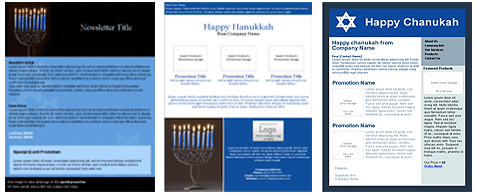Even growing up in an area with a large Jewish population, Christmas dominated the scene. I’m not about to spell out “A Lonely Jew On Christmas” a la South Park, but I know how Kyle was feeling. Especially since the stereotype of Jewish people on Christmas is going to the movies and eating Chinese food, and I don’t even like Chinese food. My grandmother’s house was right near the best area to view Christmas lights. It was a yearly activity for my family. I grew up in the age of political correctness, but still remember when everything was Merry Christmas instead of Happy Holidays. I don’t mean to come off bitter, because I am not. I’m just putting you in the mind frame of my child self (those that know me best may ask if there really is a difference). Perhaps I’m just trying to justify why I thought it was SO cool that Chanukah lasted for eight days, while Christmas was only one. Apparently I hadn’t heard the “12 Days of Christmas” yet. I would brag to all my friends that we got eight days of presents, though I don’t think that actually ever happened. It did bring me Nintendo, and for that I will eternally love Chanukah. Eventually three or four different versions of Adam Sandler’s “Chanukah Song” would help too.
The story of Chanukah has always amazed me. At the heart of it all, Chanukah is about an oil lamp that was only supposed to last for one night. Instead, it stuck it out for eight days. A miracle. That’s why, despite the fact that presents aren’t as important to me anymore, I will always love this holiday. How can you not want to celebrate a holiday based on miracles?
For those that want to wish their Jewish subscribers a Happy Chanukah and celebrate that miracles are possible, there are Benchmark Chanukah email templates. Be genuine and honor the holiday, aside from eight days worth of presents (my inner child just cringed).
| Free Hanukkah/Chanukah templates from Benchmark Email |
 |
| View all Email Templates |
During Chanukah, tops aren’t just for determining whether or not you’re dreaming. Learn how to play Dreidel:
- Any number of people can take part in this great game.
- Each player begins the game with an equal number of game pieces (about 10-15) such as pennies, nuts, chocolate chips, raisins, matchsticks, etc.
- At the beginning of each round, every participant puts one game piece into the center “pot.” In addition, every time the pot is empty or has only one game piece left, every player should put one in the pot.
- Every time it’s your turn, spin the dreidel once. Depending on the outcome, you give or get game pieces from the pot:
a) Nun means “nisht” or “nothing” [in Yiddish]. The player does nothing.
b) Gimmel means “gantz” or “everything” [in Yiddish]. The player gets everything in the pot.
c) Hey means “halb” or “half” [in Yiddish]. The player gets half of the pot. (If there are an odd number of pieces in the pot, the player takes half of the total plus one).
d) Shin (outside of Israel) means “shtel” or “put in” [in Yiddish]. Peh (in Israel) means “pay.” The player adds a game piece to the pot.
If you find that you have no game pieces left, you are either “out” or may ask a fellow player for a “loan.”
When one person has won everything, that round of the game is over!
We suggest that if you use money to play the game, ask players to donate part or all of their winnings to tzedakah (charity). You can ask parents to match these contributions. This way everyone wins and you can share the Hanukkah gifts with those in need!
Check out our Hanukkah/Chanukah Email Templates









